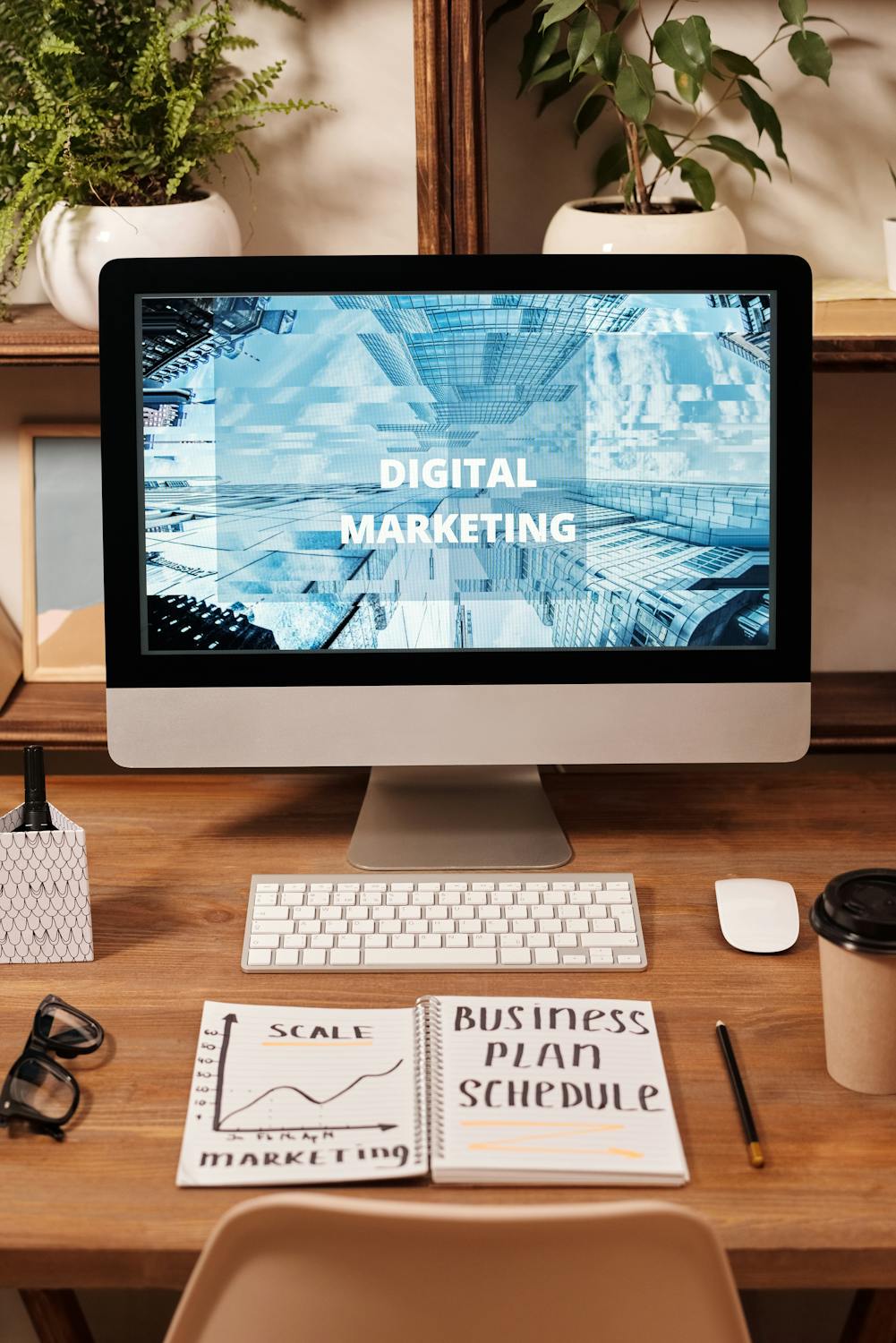Have you ever wondered if digital marketing will render traditional marketing methods? In the face of digital marketing’s rapid ascent, we turned to ten marketing experts, including Digital Marketing Managers and CEOs, to weigh in on the future of traditional marketing. From the persistent role of traditional marketing amidst the digital wave to the notion that digital reigns with traditional fundamentals intact, these professionals share their diverse perspectives on the evolving marketing landscape.
- Traditional Marketing Persists Amidst Digital
- B2B Relationships Value Traditional Marketing
- Digital Marketing Outpaces but Doesn’t Eliminate Traditional
- Digital Dominates but Traditional Holds Niche
- Integrating Digital and Traditional Marketing Strategies
- Traditional Marketing Adapts, Not Disappears
- Traditional Marketing Evolves with Digital Innovations
- Balancing Digital Dominance with Traditional Tactics
- Digital Marketing’s Reach Challenges Traditional Methods
- Digital Reigns with Traditional Fundamentals Intact
Traditional Marketing Persists Amidst Digital
Digital Marketing Manager, Abdullah Arif states, “Even in this current day and age, I don’t see traditional marketing going away. Although people do pretty much everything on their phones, there is an allure to traditional marketing that still works to this day.
Digital helps in creating awareness on a broader scale and with more segmented targeting, but the idea of a billboard or a jingle can leave an impression.
The combination of both can truly be the best of both worlds; the key will be to understand your target audience, leverage the strengths of each channel, and create a cohesive marketing approach that maximizes reach, engagement, and ROI across both traditional and digital platforms.”
B2B Relationships Value Traditional Marketing
Hristina Stefanova, Head of Marketing Operations shares, “traditional marketing channels are nowhere near being overruled in the context of B2B relationships. It’s even obvious that B2B professionals become overwhelmed and tired of digital communications, especially AI-generated ones. Emails, social media posts, cold calls—these get blocked and ignored at a rate unseen before. At the same time, in-person networking at events is alive and kicking, with humans looking to connect to humans. It’s one of the paradoxes of digital technology: the more connected we get, the less connected we feel. In that sense, traditional face-to-face time is irreplaceable in B2B for the time being.”
Digital Marketing Outpaces but Doesn’t Eliminate Traditional
Digital Marketer, Kartik Ahuja, highlights, “Despite the “offline” marketing methods not being impracticable, they’re being left in the dust by their “online” counterparts. An illustration of such a pattern can be seen in the transition from printed ads to digital ones. There is an example of a client in the fashion industry. At some point, they moved a part of their advertising budget from conventional print magazine advertising to social media and search engine marketing. They suddenly experienced a constant 40% growth in website traffic and a gradual rise in online sales by 25%.
Internet marketing enables precision and flexibility in measurement and scope, which may result in more effective and low-cost ways of promotion. However, the fact that digital marketing is so widespread doesn’t mean traditional marketing has died out. Combining both digital and offline platforms yields good results that ensure the services are acceptable to the target customers using either conventional or digital setups.“
Digital Dominates but Traditional Holds Niche
Tom Jauncey, a Head Nerd at Nautilus Marketing states “Traditional marketing isn’t dead, but digital is definitely in the driver’s seat. Digital marketing lets you target the right people and track results, giving it a clear edge. The numbers don’t lie—digital ads are set to dominate spending worldwide. That said, some audiences still prefer the tangible experience of print ads, flyers, or in-person events. The key isn’t picking one or the other; it’s about finding the perfect mix for your unique audience.”
Integrating Digital and Traditional Marketing Strategies
Founder and Head of Marketing, Casey Jones, mentions “Traditional marketing won’t be forgotten—it’s evolving. Digital takes the lead due to its precision and scalability, but traditional channels like print, TV, and billboards still resonate with certain demographics. It’s synergy that’s key. We’re moving toward integrated campaigns that leverage the strengths of both. Remember, it’s not digital vs. traditional; it’s about what works for the audience. The future is blending mediums for maximum impact.”
Traditional Marketing Adapts, Not Disappears
Precious Abacan, a marketing director says “It will be replaced, unfortunately. I can’t say it’s dying, but it’s definitely declining.
There are so many reasons why traditional advertising has seen a gradual decline in popularity over the past decade. Millennials and Gen Z increasingly distrust traditional forms of advertising, alongside corporate brands. Simultaneously, digital marketing has become more accessible and cost-effective, while people are discovering better digital alternatives for traditional forms of interaction and entertainment, such as social media, video streaming services, and remote work.
Brand trust has reached record lows, and as millennials age, the marketing landscape continues to shift. Meanwhile, digital marketing continues to grow in practicality. However, these changes have occurred gradually, without a single defining moment leading to the demise of traditional advertising.
I do think that traditional marketing spending and effectiveness continue to decline steadily. But instead of disappearing suddenly, I believe traditional ads are evolving. Just as dinosaur species gradually evolved into bird-like species, traditional marketing is likely to evolve into new hybrid forms or adapt to new contexts over time.”
Traditional Marketing Evolves with Digital Innovations
A Content Marketing Manager, Wisia Neo highlights, “Audiences crave novelty. So even as digital marketing becomes routine, anything ‘different’ becomes exciting—whether it’s an out-of-home campaign, billboard ads, or a personalized wine set sent by snail mail.
Marketing isn’t a zero-sum game. Instead, it’s about finding what resonates. Take the example of Coca-Cola’s ‘Share a Coke’ campaign, blending digital personalization with traditional product packaging. And of course, sharing a physical product on digital platforms at a global scale.
So rather than forgetting traditional methods, they evolve alongside digital strategies, creating a dynamic mix where old and new seamlessly coexist, catering to diverse audience preferences.”
Balancing Digital Dominance with Traditional Tactics
Founder, Daniel Willmott mentions, “Considering how digital marketing is a big thing nowadays, it can possibly overrule traditional marketing. I mean, it’s all about that wider reach. With digital, you can cast your net far and wide, reaching folks you might never catch with traditional methods. Plus, the beauty of it is you can measure results on the fly and tweak your strategy as you go.
That said, traditional marketing still holds its ground in some scenarios, like certain demographics or local markets where that personal touch still reigns supreme. But yeah, as the owner of a video editing and marketing agency, digital definitely has the upper hand in many respects.”
Digital Reigns with Traditional Fundamentals Intact
CEO, Robert Brill states, “Marketers go where the audiences are, which means digital marketing is the de facto method of marketing currently. But the marketing fundamentals from traditional media remain in place for digital. Among these fundamentals are that marketers still need a strategy. The customer’s transformative value still drives the messaging. Creativity is still king.”
Special thanks to Featured for their continued help in the creation of this blog post. Click below for more strategies from the Nativa team regarding Online Marketing.



